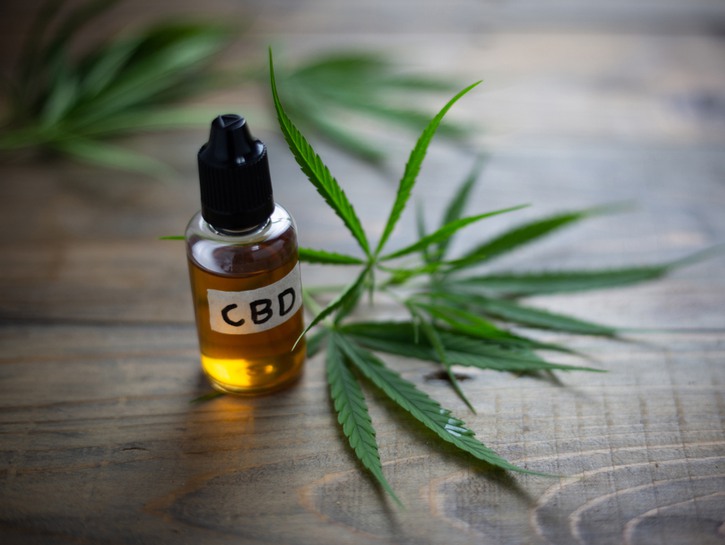What Is CBD Oil?
Over the past couple of years, CBD oil has become one of the most used and talked about alternative forms of medicine. It seems like you can buy the compound just about everywhere from your local pharmacy to your cousin who sells “the purer forms” of CBD out of their apartment.
But what is CBD, what are its uses, and is it legal?
CBD is short for cannabidiol, one of the compounds found in the cannabis plant. This should not be confused with THC, or tetrahydrocannabinol, the compound that causes users to get high. Unlike its well known counterpart, CBD won’t get you high, but it can help take the edge off.

How Do You Use CBD Oil?
It seems like with each passing day there is another way to ingest CBD oil, but the two most popular methods are still drops and capsules. In addition to the drops and capsules, patients can medicate themselves with edible solutions that can be cooked into their favorite dishes, patches that can be applied to the back or other affected areas, vape pens containing an oil concentrate, and even topical creams.
All of these variations of CBD treatment can be found at any number of retailers, including Walgreens, which plans to introduce CBD products to 1,500 of its stores nationwide in the coming months.
And if taking capsules or dropping the oil under your tongue, you can try out this quick and easy cannabutter recipe.
What Are The Benefits Of CBD Oil?
CBD can purportedly be used as a natural remedy for a growing list of common conditions, including everything from pain relief to anxiety and depression, and even more severe conditions like addiction and cancer.
Neuroscientists such as Michele Ross have backed up this assertion as she explained in an Esquire interview: “CBD boosts your own natural cannabinoids, which improves your mood and overall well-being.” See, the human body already produces its own cannabinoids, which are also found in marijuana. These cannabinoids are generated internally to help maintain a stable environment in our bodies, and when these cannabinoids are activated by CBD, the benefits can be remarkable.
And while CBD can be used for our everyday well-being, let’s take a look at some of the more profound uses of the compound: cancer and epilepsy.
In recent years, scientists have been taking a deeper dive into the effects of CBD on cancer patients. One of these studies came to the conclusion that the compound can be used to help relieve pain for cancer patients, which could hopefully one day serve a replacement for the current crop of opioid drug treatments that tend to lead to addiction. Another study showed that CBD helps offset nausea and other adverse effects of chemotherapy.
But the progress in CBD research isn’t isolated to the world cancer research, as there have been numerous successful studies into the effects of the compound on children suffering from epilepsy. In June 2018, the U.S. Food And Drug Administration (FDA) granted the approval of the first drug comprised of CBD to be use for the treatment of several forms of epilepsy, including those affecting children.
Is CBD Oil Legal?
This is probably the most asked question when it comes to CBD oil, but it’s not the easiest to answer due to the legal status varying by state and federally. In 2018, the United States federal government signed the 2018 Farm Bill into law, which allows for the cultivation and use of hemp. The plant was a deemed a controlled substance as part of the 1937 Marijuana Tax Act, but that changed with the signing of the bill. This new legislation seemed to have opened the door for the hemp, and more specifically, CBD oil market, which hit the ground running as soon as the plant became legal.
Despite this, there is a somewhat easy way to understand the legality of the compound – if the CBD oil is extracted from a hemp plant, it’s safe to say that it’s legal, but it’s illegal if the compound is derived from a marijuana plant.
There is an exemption to the legality of CBD derived from marijuana, however. Medical marijuana patients can purchase and possess that variety of CBD as long as they have their medical marijuana card. And with 47 out of 50 states allowing medical marijuana patients to purchase the compound, you should be safe as long as you’re not in Idaho, Nebraska, or South Dakota.
But these legal opinions could change drastically over time, so make sure to conduct proper research before making a decision.

What Is The Future Of CBD Oil?
Where will CBD be in one year, five years, or even 10 years from now? Will all uses be legal in the near future? Will the number of people using the natural compound increase as word of its medicinal properties spreads? And if so, how big could the market get?
Well, while the first question has yet to be answered due to a lack of a crystal ball showing us the future, an analysis by international investment firm Cowen Inc. recently released a study estimating that 10 percent of the adult population, or 25 million people, will be using some form of CBD oil by 2025, which the firm believes will bring in $16 billion in annual revenue in a little more than five years.
With studies like that, it looks like the the sky is the limit for the CBD oil industry. But who’s to say that the market will go that way? Who knows, the whole thing might go up in smoke before it reaches its highs.
